How South Korean war preppers are getting ready for North Korea nuclear threats
War-preppers have gained popularity as North Korea has tested its missiles.
SEOUL— -- Seung Yeob Woo has a small go-bag with him at all times. It’s always is filled with water, a thermal blanket, a hat and earmuffs, tissues, a hand warmer -- even bleach. He never goes anywhere without it. He also knows how to quickly find the nearest evacuation center.
Survival, he said, is measured in minutes -- and every second counts.
Woo is South Korea’s most famous and vocal survival specialist, perhaps because he is among the very few willing to talk about it publicly. He is trained for an extraordinary event: North Korea raining missiles on Seoul.
ABC News' "Nightline" asked Woo to run through a hypothetical evacuation, which would start with an alert on his phone through a government-issued app. He first checked his app for the nearest evacuation center, which geotags him and points him to options of where he can go. He estimated that, given North Korea's proximity, he only had five minutes to get to an evacuation center. He suggested not using that time to call family.
He is part of a small, but growing community of South Koreans who believe they are caught in the crossfire of two nuclear powers. Though they still see the odds as low, they are quietly preparing for the unthinkable.
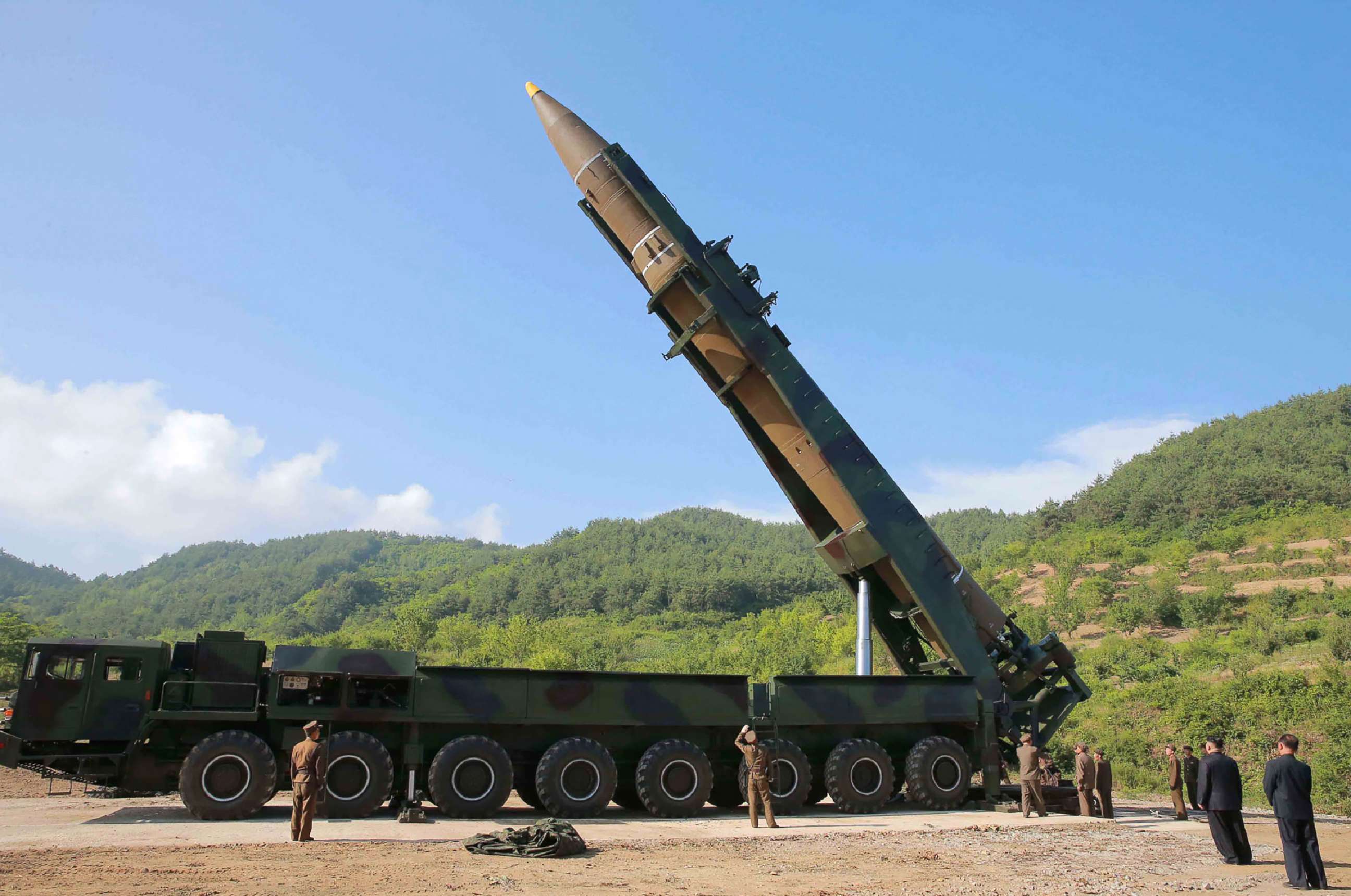
"Starting last year, North Korea tested its nuclear bomb and missile so there was a large increase in sale," Hyun Tak Kim, an outdoor gear store owner, told "Nightline."
The most popular items, he said, were radio, gas masks and emergency rations.
Seoul-based businessman Wan Hyuk Go builds luxury bunkers, which come loaded with an oxygen machine, hand-cranked power generator and even internet access.
"When North Korea launches a missile or they do something nuclear we get about 40 to 50 calls," Go said.
A tiny, but growing South Korean community is preparing in case of war with North Korea
Those calls though have not resulted in booming sales.
"It’s not for an average person because you need a house and it needs to be built underground," he added.
As North Korea tested intercontinental ballistic missiles thought to be capable of reaching the continental United States, President Trump poured fuel over an already fiery war of words.
Trump called Kim Jong-un "Rocket Man" during a speech last September at the U.N. General Assembly, saying that the U.S. "will have no choice but to totally destroy North Korea." That left leaving many in South Korea fearing that their neighbor would retaliate on them.
Trump bashes N. Korea at UN: 'Rocket man is on a suicide mission'
It has been more than 70 years since the Korean War, but some South Koreans believe the bulls-eye has been on them for decades. Foreign policy analysts believe that an attack on its capital, which lies barely 35 miles from the border, would be catastrophic.
"We are anxious about North Korean provocation," said South Korean lawmaker Soo Hyuck Lee, who believes that the main target is not the U.S., but its ally South Korea.
But other South Korean government officials see value in the heated rhetoric between Trump and Kim Jong-un.
"Without that kind of rhetoric, North Korea would not be feared at all," said Soo Hyuck Lee. "Maybe we can give the credit to Trump in terms of making North Korea come to the negotiating table."
He warned that any military action against North Korea, including a limited strike that targeted its nuclear weapons, would be a big mistake, triggering an international conflict.
"North Korea has a border with China and Russia, right?" he said. "The United States wages a war -- even if they put a small bomb, that could escalate to the war, total war, between South and North."
He added, "There is only one option left –- negotiation, diplomacy. No other way."
And not all South Korean citizens consider the war of words to mean the country is headed towards the possibility of war. According to a Gallup poll in South Korea, 58 percent of the country's residents say they believe there's zero chance North Korea would start a war.
But Korea watchers say part of what makes the situation so explosive is that there’s only one major evacuation route heading south.
Busan, the city where most people fled to during the Korean War, is a two-and-a-half-hour train ride south of Seoul. But some analysts are very concerned about a potential scenario in which more than 10 million people would fleeing there.
Robert Kelly is a Busan-based politics professor and well-known TV commentator, most famously known as the “BBC Dad” from one of 2017’s most viral videos.
Kids' interruption of father's live TV interview goes viral
He believes Trump’s rhetoric has worried many people in South Korea."I think the big issue with President Trump, his commentary, is that he has begun to normalize the idea of using force against North Korea," Kelly told "Nightline."
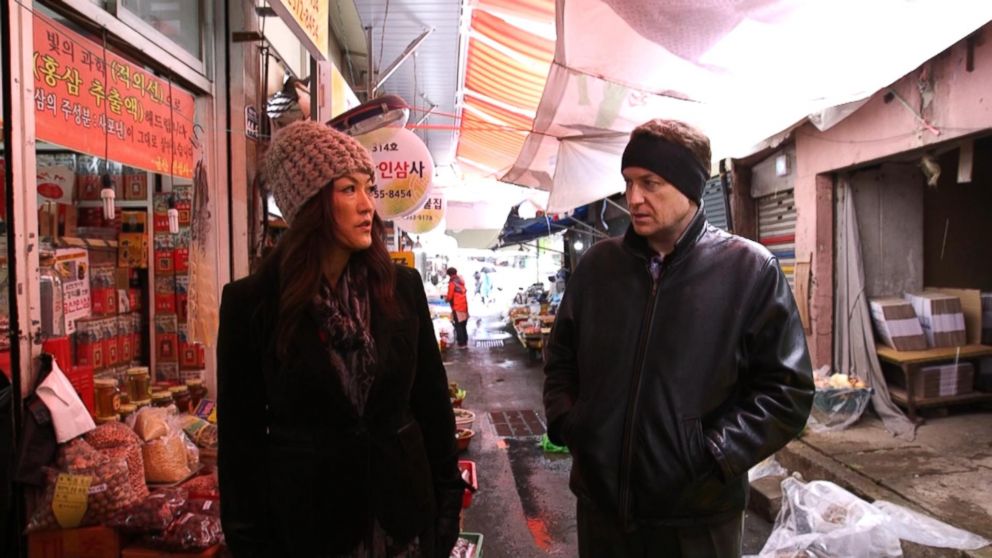
Since both U.S. and North Korea are armed with nuclear capabilities, South Koreans find themselves in a situation of cold peace. It's a classic case of nuclear deterrence in which neither side pulls the trigger for fear of mutually assured destruction.Although still a terrifying situation, it’s one that is still better than war, Kelly said. But his wife Jung-a Kim said, "Every time we heard the news, we are thinking, 'When there is a nuclear blast, what do we have to do?'"
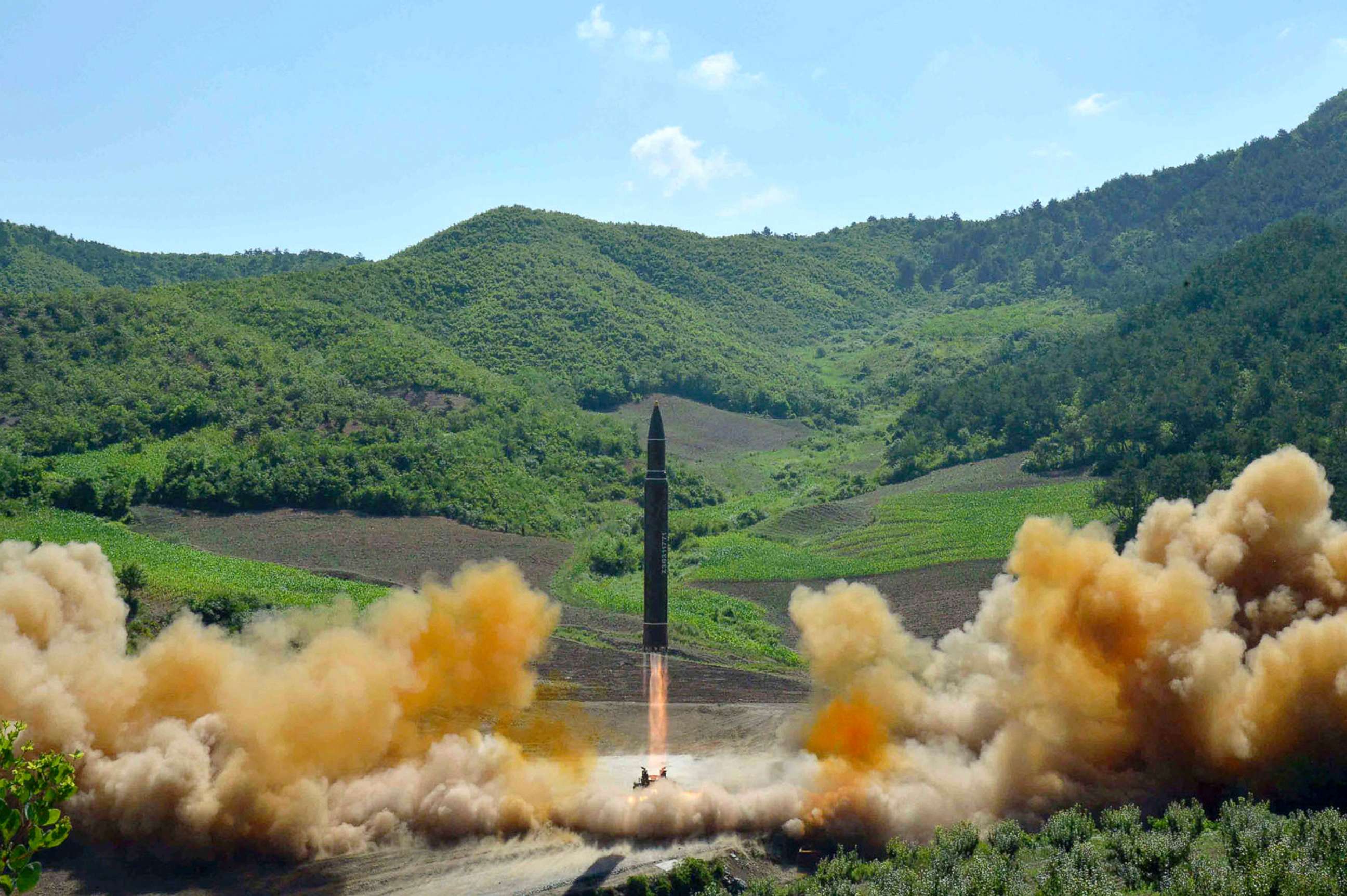
Kelly said he is surprised at the nonchalance of many Koreans. He said his students say they would probably go home if there was an attack.
He attributes this attitude to the age-old “boy who cried wolf” phenomenon -- North Korea has been making tall claims of war since the 1960s.
"They know if we have a new war, it will be a big war," said Jung-a Kim. "Nobody would survive, both countries will collapse.”
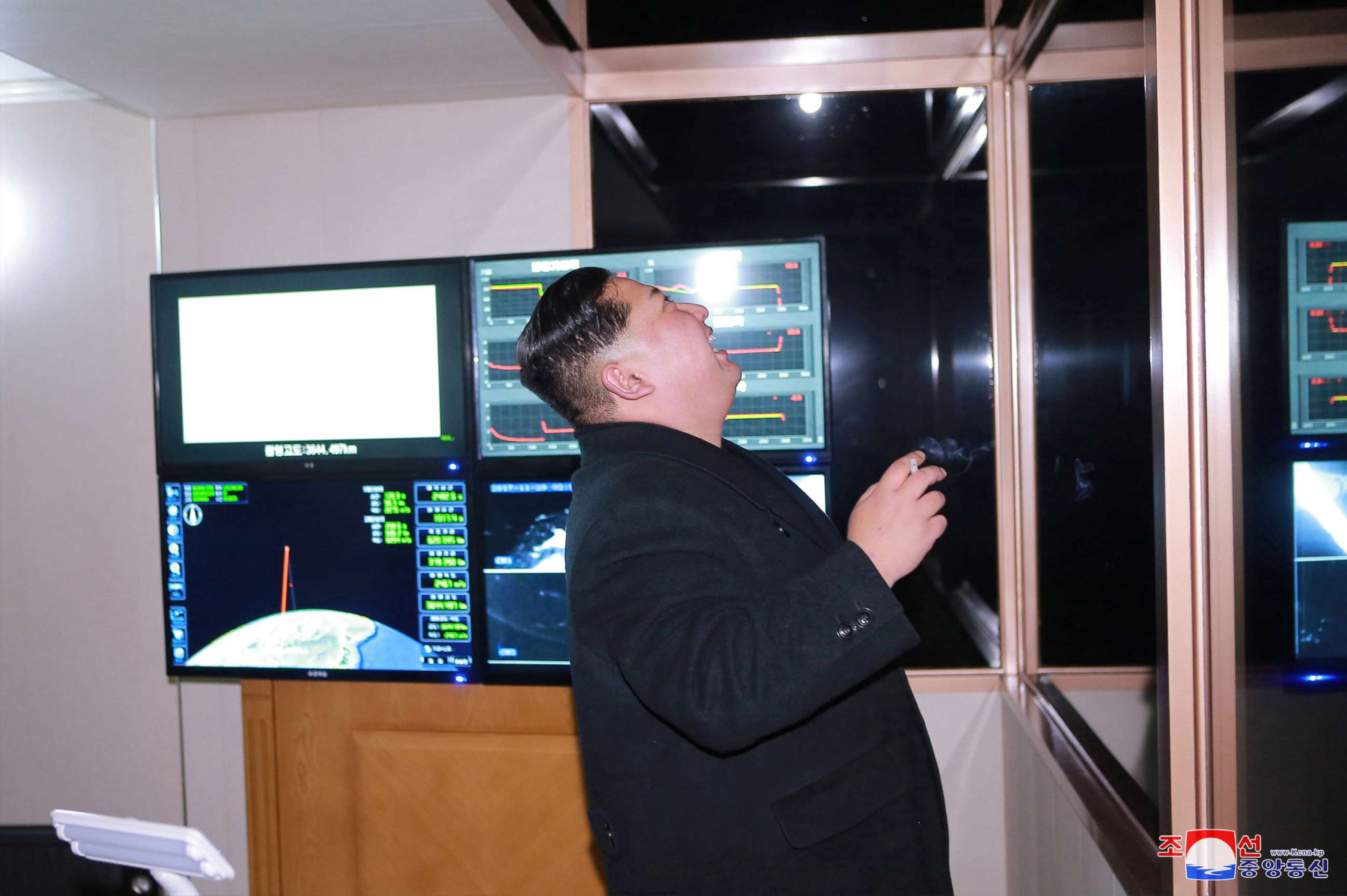
On the eve of the Pyeongchang Olympic Games, Kim Jong-un sent a delegation to rare face-to-face talks -- a move Ban Ki-Moon, former United Nations Secretary General, views as a step forward.
"I am very encouraged and happy that, after long, such a heightened tension on the Korean Peninsula, we are now seeing a small opening of dialogue," Ban Ki-Moon told "Nightline."
A delegation of athletes, including a joint North-South women’s hockey team, will be competing in the Olympics. Kim Jong Un's own sister is also scheduled to attend the Games -- the first time a member of the North Korean ruling family will step foot in the South since the Korean War.
"I have seen such a power, which can instantly mobilize passion and friendship through sports," said Ban. "I hope this will lead to more meaningful dialogues for the reconciliation and continued denuclearization of the Korean Peninsula," though adding that it wouldn’t be easy.
Seung Yeob Woo has already seen combat up close with North Korea. In 1996, the survival specialist was a paratrooper serving in the South Korean army when the North sent a commando unit to infiltrate his country.
In fact, watching his fellow soldiers being hit by bullets and other disasters inspired him to become a survivalist and train would-be preppers in classes he leads. One of the participants in his class is Kyung Ah Yang, who has a 12-year-old son.
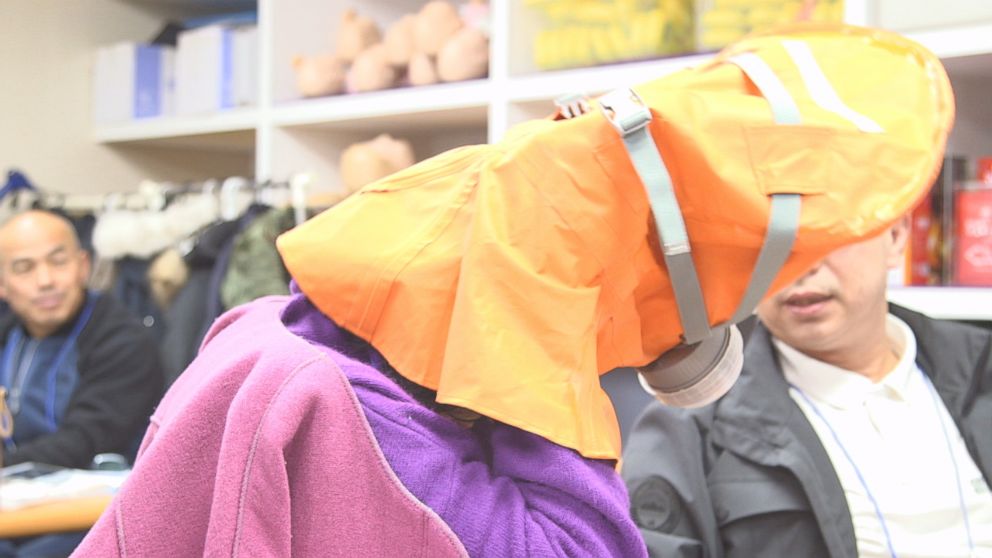
"North Korea has become an issue because of their nuclear weapons, and I heard they may also have chemical weapons," she said. "I had no interest before, but now that I have a family, I have to know for my child."
She has recently started talking with her son about what their evacuation plan would be. "Adults say there won't be a war, but just in case," she said.
It is a preparation she, and millions of others, hope will be proven unnecessary.




